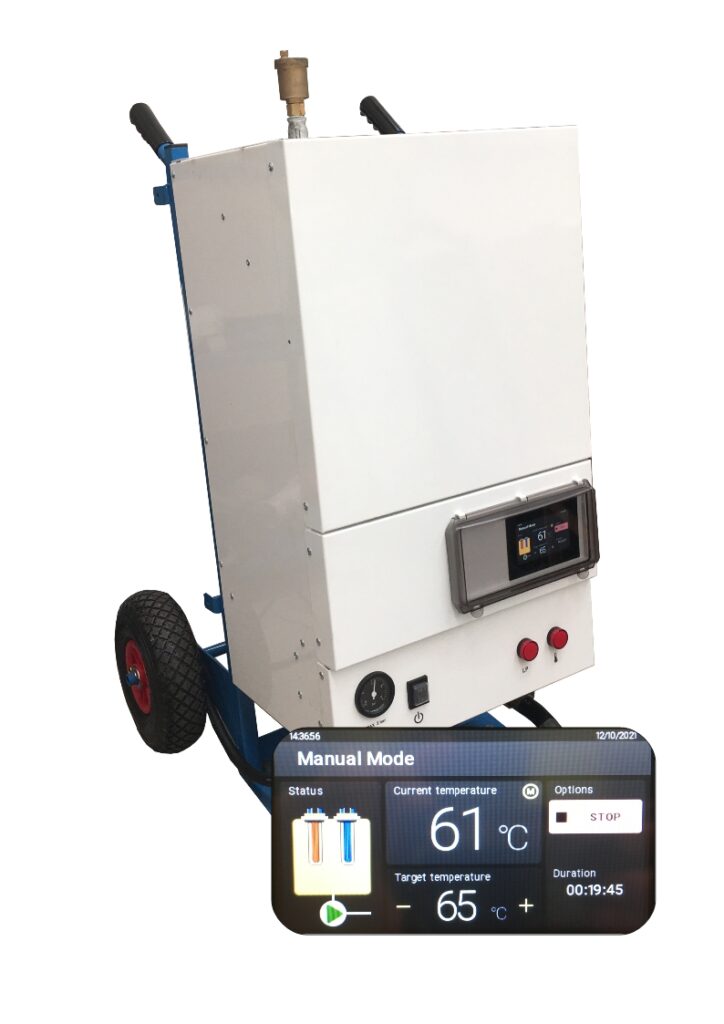
Introduction
Electric boilers are becoming an increasingly popular choice for both residential and commercial heating needs. As the UK moves towards cleaner energy solutions, many homeowners and businesses are exploring alternatives to traditional gas or oil systems. Electric boilers provide an efficient, reliable, and environmentally friendly way to generate heat, making them a compelling option in today’s energy-conscious world.
How Electric Boilers Work
An electric boiler functions by using electricity to heat water, which is then circulated through radiators, underfloor heating, or a hot water cylinder. Unlike gas or oil boilers, there is no combustion process involved, meaning there are no flue gases or emissions to manage.
The absence of moving parts such as burners or pumps in certain designs also makes electric boilers quieter and often more compact than traditional systems. They can be installed in smaller spaces, making them ideal for properties where size and noise are a consideration.
Advantages of Electric Boilers
One of the main benefits of electric boilers is their high efficiency. Since almost all the electricity consumed is converted into heat, there is minimal energy wastage. This results in lower running costs in some cases, particularly for well-insulated properties.
They are also far simpler to install than gas or oil systems, as they do not require a flue or fuel storage. This can make the installation process faster and less disruptive. Maintenance is typically straightforward, as there are fewer components that can fail.
From an environmental perspective, electric boilers produce no on-site emissions, making them a cleaner option for the home or workplace. When paired with renewable electricity sources such as solar panels or green energy tariffs, they can offer an almost carbon-neutral heating solution.
Applications in Homes and Businesses
Electric boilers are suitable for a range of applications. In smaller homes or flats without access to a mains gas connection, they provide an efficient and practical heating option. In commercial settings, they can serve as the primary heating system or as a backup to existing gas or oil boilers to cover peak demand.
They are also a popular choice in areas where strict emissions regulations make traditional combustion heating less desirable. For example, some urban developments and new-build properties now favour electric boilers to meet energy efficiency targets.
Comparing Electric Boilers to Other Systems
While gas boilers remain common in the UK, electric boilers are gaining traction due to their environmental benefits and flexibility. They are quieter, often require less maintenance, and can be installed in a wider range of locations. However, electricity is generally more expensive per unit than gas, which can affect running costs.
Oil boilers, on the other hand, require fuel storage tanks and regular deliveries, which can be inconvenient. Electric systems avoid this entirely, offering a cleaner and more straightforward solution.
Heat pumps are another alternative, offering high efficiency and the ability to both heat and cool spaces. However, they often require more space for installation and can be more expensive upfront compared to electric boilers.
Factors to Consider Before Choosing an Electric Boiler
When deciding on an electric boiler, it’s important to consider the size and heating requirements of your property. An undersized boiler may struggle to keep up with demand, while an oversized one could be less efficient.
Your property’s insulation levels also play a big role in efficiency. Well-insulated buildings will make better use of the heat generated, reducing energy consumption and costs.
It’s also worth reviewing your electricity tariff. Some suppliers offer cheaper rates at off-peak times, which could help reduce operating costs, particularly if your heating system can store hot water for later use.
Supporting Equipment and Systems
Electric boilers often work alongside other heating and ventilation equipment, especially in commercial or industrial settings. For instance, integrating them with electric boilers and advanced air handling units can help regulate indoor temperatures more effectively, ensuring even heat distribution and improved air quality.
In more complex systems, electric boilers may be part of a central plant room, connected to a range of controls and monitoring equipment that optimise performance.
The Future of Electric Boilers
As the UK pushes towards net zero emissions, electric boilers are expected to play a growing role in the heating market. Government incentives, combined with rising interest in renewable energy sources, are making them an attractive investment.
Technological advancements are also likely to improve their efficiency and performance further, while the gradual decarbonisation of the national grid will make their environmental impact even lower.
Conclusion
Electric boilers offer an efficient, low-maintenance, and environmentally friendly way to heat homes and businesses. They are particularly suitable for properties without a gas connection or where emissions restrictions apply. While running costs depend on electricity prices and building efficiency, their reliability, installation flexibility, and potential for integration with renewable energy make them a strong contender for the future of heating in the UK. By considering property size, insulation, and tariff options, buyers can make the most of what electric boilers have to offer, ensuring a sustainable and effective heating solution for years to come.